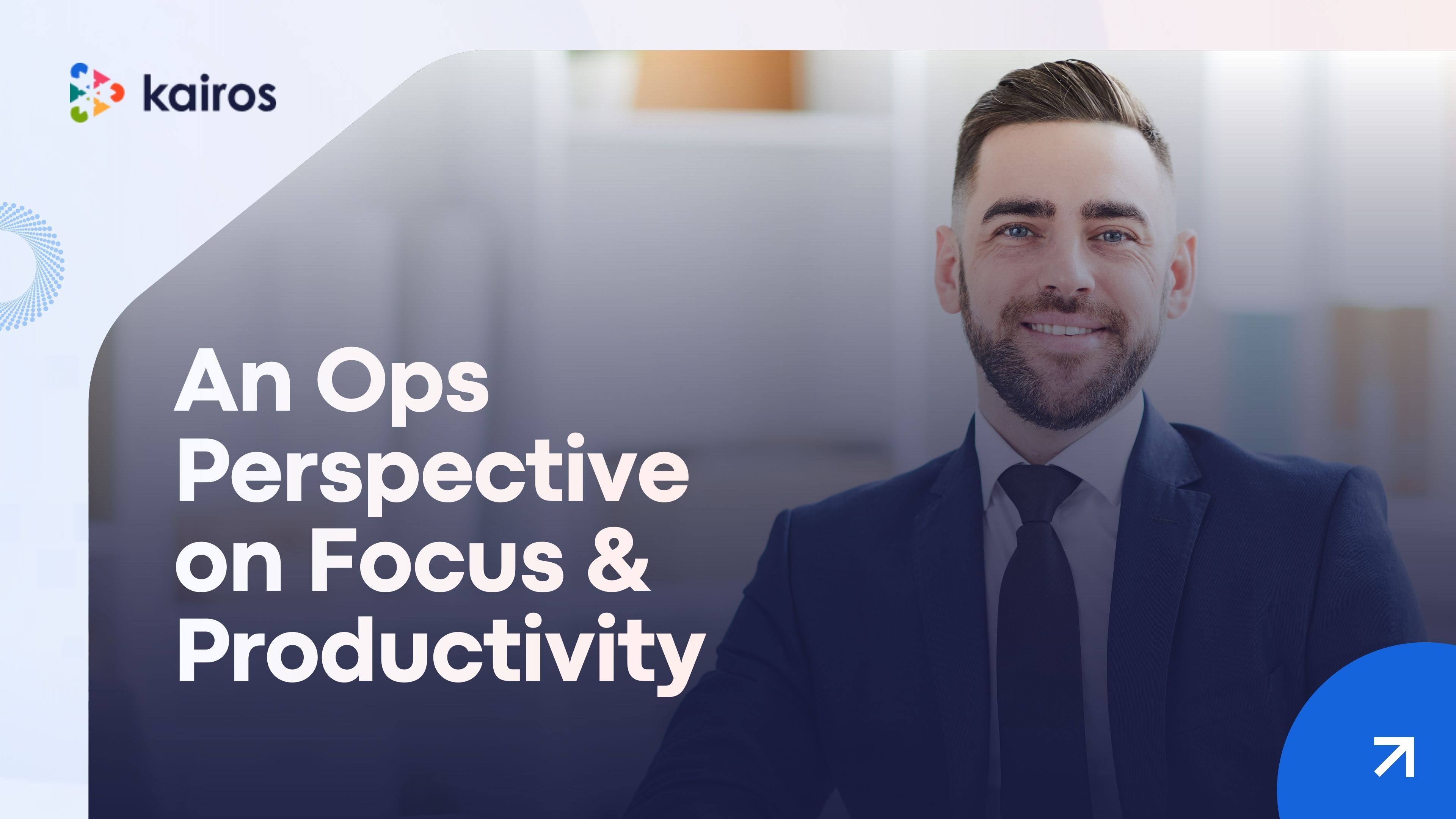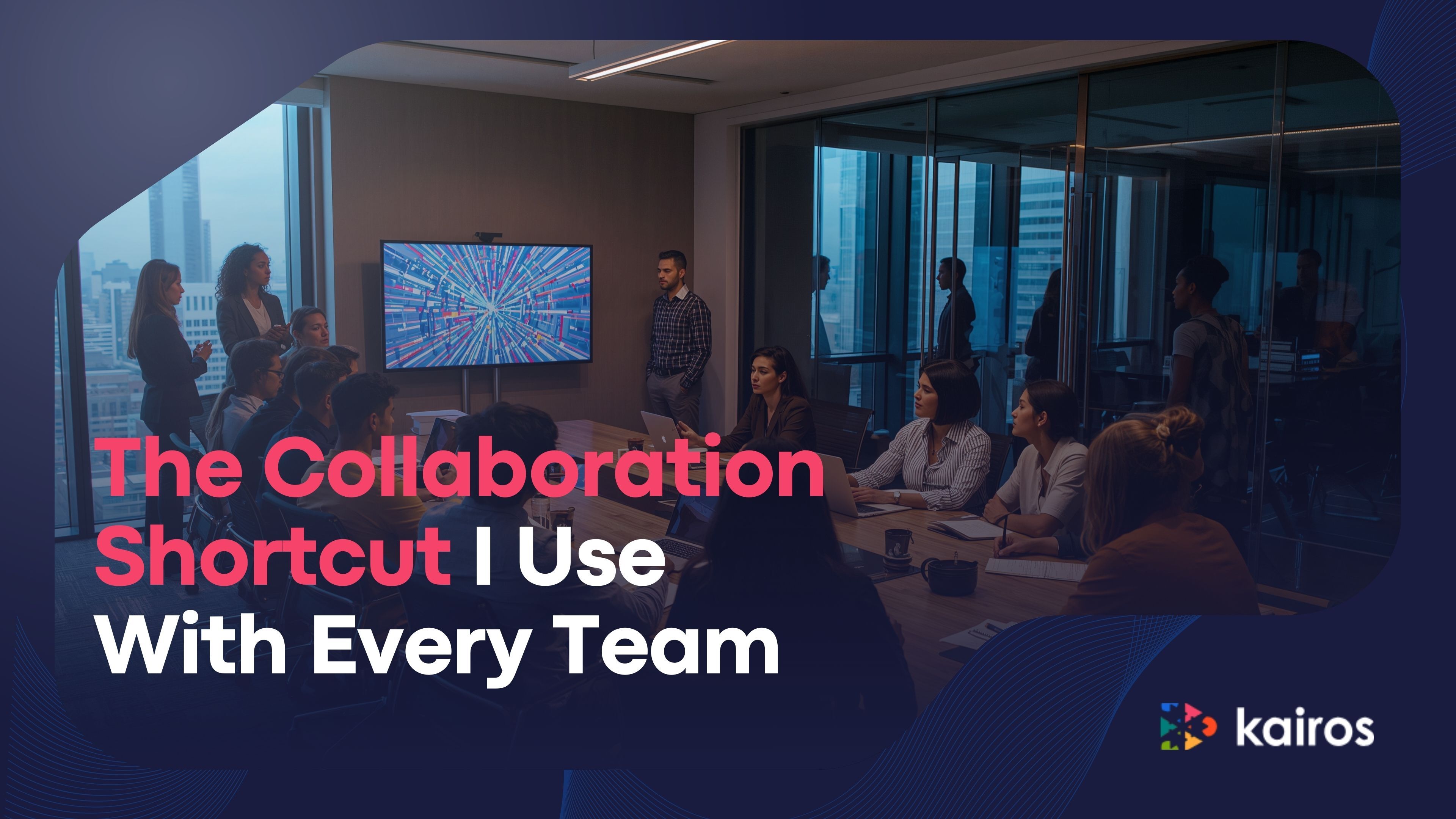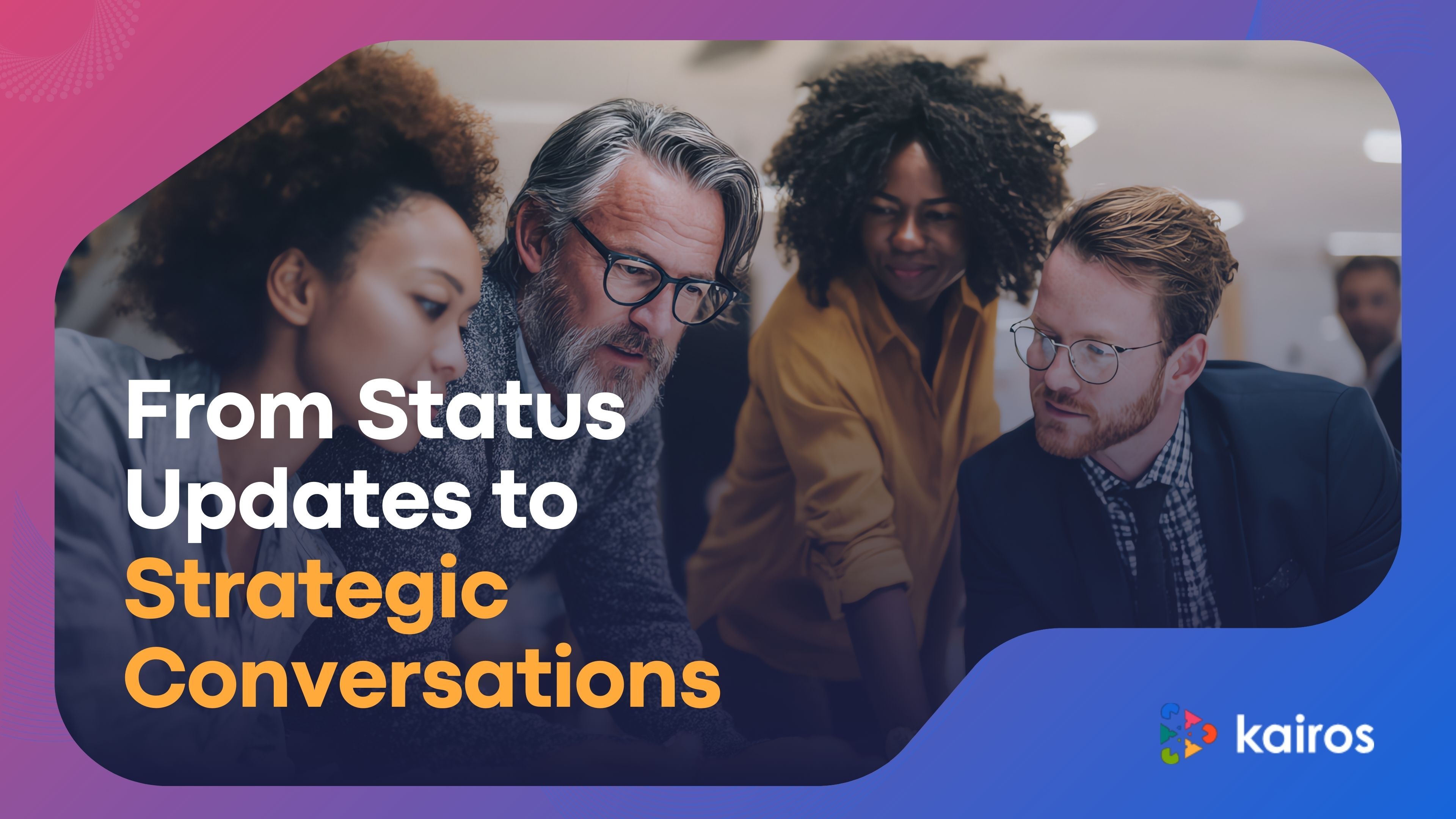Ready to Optimize? Rethink AI Notetakers for Meetings
Artificial intelligence (AI) has had a huge impact on human lives around the world. From predictive modelling to medical diagnostics to automating repetitive tasks, there has been a proliferation of AI-powered tools and technologies.
And promises to make lives easier and better.
In a business context, AI solutions save time, allowing focus on more strategic and creative work. However, there are a few exceptions where the benefits of AI integration are simply not worth the hype.
Like meetings
AI notetakers help summarize straightforward discussions or casual chats, but they cannot replace comprehensive meeting summaries that capture active collaboration, decision-making, problem-solving, and assigning action items.
This article explores how AI notetakers may actually compromise your team's productivity and efficiency in certain scenarios.
Defining AI Notetakers
Since the introduction of AI tools in the workplace, notetaking software has gained popularity as a productivity booster with promises to capture and organize meeting insights, and in some cases, even delegate action items to stakeholders seamlessly and with next level efficiency.
In certain contexts, notetaking software is invaluable – think of summarizing one way communication such as lectures and presentations. Huge timesaver!
BUT in a meeting context where information flows two ways and achieving outcomes depends on participant engagement and interaction, notetaking software falls short.
Consider the following limitations.
1. AI Notetakers Lack Emotion
Good leaders observe all aspects of communication during meetings and follow up as needed. Despite advanced and increasingly complex algorithms, notetaking software is incapable of doing the same. Technology outputs are void of tone, emotion, and unable to capture non-verbal communication that often occurs in meetings.
For example, a meeting participant may appear visibly uncomfortable during a specific discussion and say nothing during the meeting, choosing instead to follow up privately with his or her manager post-meeting.
The notetaking summary generated relays unanimous agreement and consensus from the meeting, clearly misrepresenting what actually transpired. This has implications for managers because it may result in a missed opportunity to identify and address an underlying problem.
2. Creative Brainstorming and Animated Discussions are Difficult to Capture
Sometimes the best discussions are unfiltered and non-linear. Any time the purpose of a meeting is to generate creative solutions or evaluate options, there can be healthy debate, back and forth exchanges, or tangents that quickly need to be reined in or revisited later.
In these settings, notetaking software may be unable to accurately capture the flow of discussion, producing summaries that are disorganized or difficult to follow. Or if the creative juices are really flowing and ideas are being thrown out at a rapid rate, information may get missed. This is great problem to have, and for leaders, worth noting because it may result in a loss of ideas if no one is writing them down.
3. The Cop Out Effect
Every manager’s nightmare is seeing attendees lose interest, start to fidget, or even worse, check their phone during a meeting. Arguably, phones should be banned from every meeting but that’s a debate for another day.
With deadlines and to-do lists, if participants know a meeting will be recorded, summarized, and shared post-meeting, what is the incentive to pay attention? Notetaking software may promote a passive mindset among some attendees.
Side note - active listening and attendee engagement are important pillars of meeting success so if neither are happening, managers should ask if everyone invited needs to be there, and more importantly, would a meeting alternative have been a better option?
4. Big Brother Concerns
Some business leaders are hesitant to use notetaking software due to concerns related to privacy and security. If company sensitive information is being discussed, where do AI notetakers store this information and who has access? Cybersecurity threats and data breaches are common, costly, and a growing concern for businesses everywhere.
5. AI Notetakers vs. Human Insight: The Real-Life Disconnect
As capable as notetaking software is in certain environments, it does not have the same ability as humans to evaluate options, prioritize tasks and assign responsibility. Why? Because AI lacks the reasoning and contextual awareness ability of humans.
From a leadership perspective, delegation is an important function, requiring the ability to critically assess and evaluate multiple factors. Leaders put themselves and their teams at risk when they rely exclusively on AI software to delegate meeting related tasks. Factors beyond the actual meeting such as experience, professional development goals, or learning styles, may be important to consider when allocating resources or dividing responsibilities.
6. Data Overload
Your team members may already be struggling with deadlines and to do’s, and as their manager, you probably spend a significant amount of time helping prioritize projects and ensuring workloads are manageable. Consider the volume of data and required reading that notetaking software generates following each meeting.
Who wants more to read?
Does anyone really want another detailed meeting summary to review, check for accuracy, and catalogue for future reference? Especially given that typically, those reviewing these generated summaries are the same team members who attended the meeting in the first place?
Likely not.
7. AI’s Not So Little Dirty Secret
Depending on where you sit on the climate change discussion and its relevance to your business, environmental concerns related to technology could be an important consideration for some business leaders. While not specific to notetaking software, there is growing concern related to the physical waste generated by rapid advances in AI technology. Data requires physical storage and this means a steady stream of hardware and electrical components.
Leaders wanting to promote environmental responsibility and sustainable work practises should consider a more productive integration of AI to support business operations.
8. Limited Value in Driving Business Outcomes
Leaders who consistently ask ‘what is the purpose of this meeting’ are focused on ensuring that the time spent in a meeting directly supports a specific business outcome. They understand that effective meetings facilitate alignment, collaboration and require follow through. Notetaking software may provide a record of discussions but are unable to track business value.
9. AI Notetaking Software Falls Short in Improving Meeting Quality
Leaders committed to enhancing productivity know that planning and preparing in advance of a meeting yields the best outcomes. Notetaking software is reactive, adding no value in improving actual meeting quality.
Rethinking Notetaking: How Leaders Can Enhance Meeting Effectiveness
If AI-powered notetakers add minimal value to meetings then what exist for business leaders to support their meeting effectiveness?
- Actively facilitate and empower: leaders plan and schedule meetings with a clear purpose. They guide focused discussion and encourage participation from all attendees. Whether they take notes themselves or assign a team member, they ensure that outcomes and action items are well documented.
- Integrate collaboration software: plenty of technology tools allow team members to simultaneously add, edit, and review meeting-related material. Leaders can also promote engagement by sharing pre-reading material or soliciting feedback ahead of meetings.
- Structure around outcomes: agendas, checklists, and project management tools can help reduce notetaking in meetings. Leaders who prioritize structure around specific objectives help meeting participants stay focused, ensuring everyone’s time is maximized for productivity.
AI Notetakers: Convenient but Not a Substitute for Human-Centric Meetings
AI notetakers are convenient but should not be relied upon. Effective leaders know that meetings are human-centric; they actively facilitate discussions; and ensure that every meeting serves a specific purpose.
Invest in your organization’s meeting culture to maximize overall productivity. Our integrated technology platform gathers meeting data, generates actionable insights, and guides leaders in real time. Plus, our unique partnership with meeting science researchers ensures AI integration where it offers the most benefit. Contact Kairos today to learn more about how to optimize meetings at your organization and unlock your true potential as a leader.


